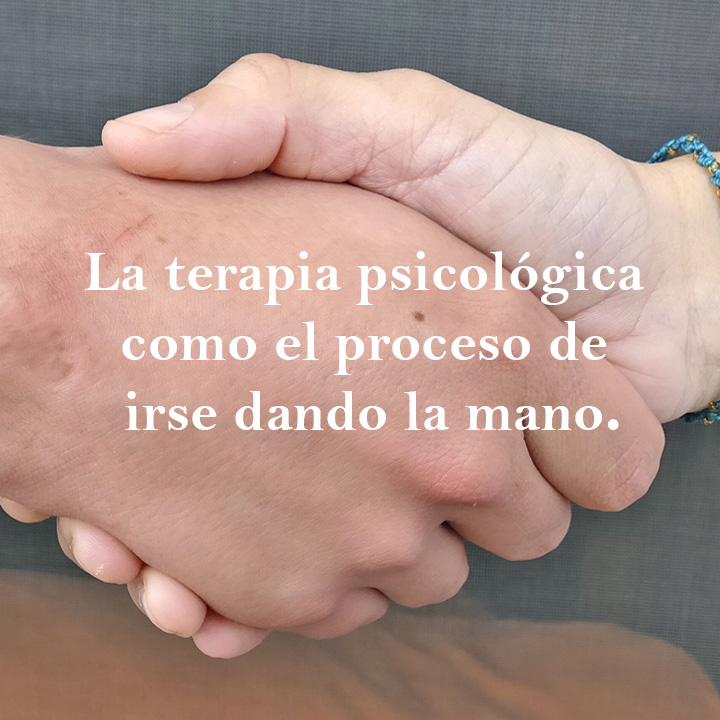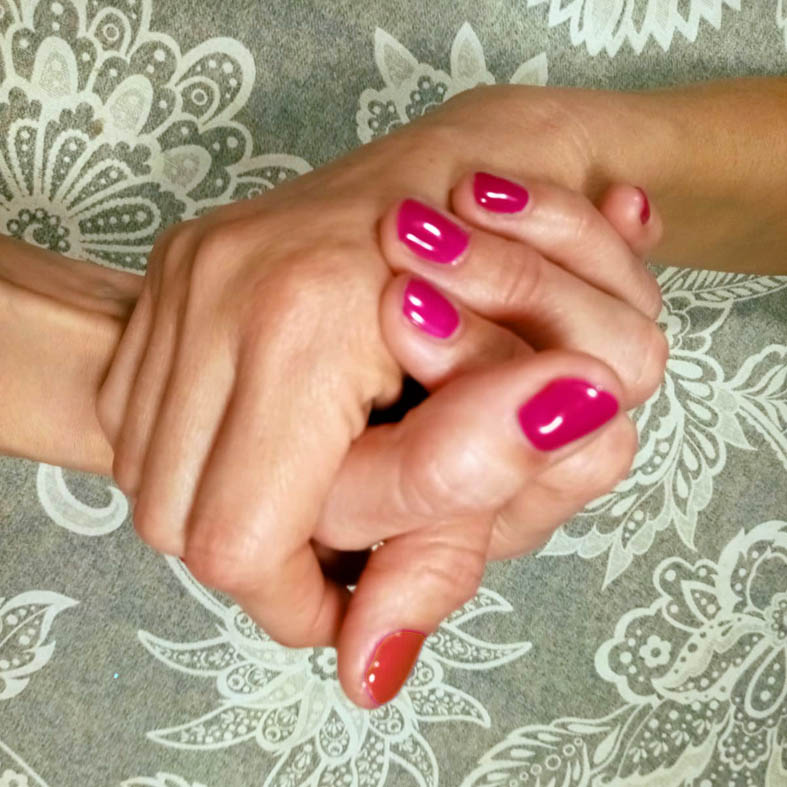In the first groups where I treated codependency, one of the exercises I proposed was holding each other’s hands. Curiously, something so simple generated a lot of resistance, to the point of causing rejection. Feeling that foreign touch, their temperature, hydration, movements, etc., became dangerous territory, which we could not control. We were learning to recognize firsthand (pun intended) the limits: Where one ends, so the other begins.
Feeling these limitations was intimidating, because we used to live relationships in our imagination (beliefs, prejudices, absolutes, etc.), where everything was as painful or as ideal as we wanted. We controlled there. But shaking hands with someone, just for the sake of it, without drama or romance, without reward or punishment, was disconcerting. We liked life too much to just live it.
It is this coming down to earth that we carry out in therapy, in the way of coexisting with the other. Encounter fears, doubts, insecurities or frustration, and not run away; Encounter understanding, connection, identification and sympathy, and not merging. If the first few sessions don’t take us to heaven or hell, we begin to feel uncomfortable, inappropriate, and out of place. Being able to overcome this first obstacle portends in-depth work.
Limiting ourselves to a simple handshake relieves us of the burden of having to be infinite and absolute (being success, being failure, etc.). Finitude allows us to have limits, and if we have limits it is because we are contained by what we are not: My life is not me, but I am in my life. I am part of it! To make it even shorter, I will say that my therapy is not me, but that I am in my therapy. The other is also there, everything that happens in the therapeutic relationship. Hence, feeling good or bad is not as important as the ability to put it on the table and discuss it.
Today we will shake hands, yes, everything will be fantastic, we will always agree, the therapy will be a success. But tomorrow will be a disappointment, I will feel upset and it will be a waste of time… So, we won’t shake hands anymore? I can disagree with you, and shake your hand. You can disagree with me, and shake my hand. But pathology, absolutist thinking, always prefers being right (understood as control) to being right.
The work lies in us being able to shake hands. It’s something as simple as the arguments to refute it: I didn’t finish the session feeling better! I don’t know what I’m doing here! What does this person know about me?, etc. Pathology will constantly try to boycott an alliance per se. In fact, if we didn’t already know that we were going to encounter serious resistance, why do therapy?

CONCLUSION
By shaking hands, we are creating a new neural network, a space that did not exist before. A way of being in the world, in which the important thing is you, and not whether you have a partner or not, or whether you are inadequate or brilliant, etc. The point about this is that it cannot be imagined, because then we already operate pathologically from what should or should not be. It is a path that only exists when walking: The reality principle.
Sometimes, at the end of a first session, they ask me: “Well, what do I have to do now?” Let’s simply shake hands, and until next time. This is the framework of therapy in which we can rest.
